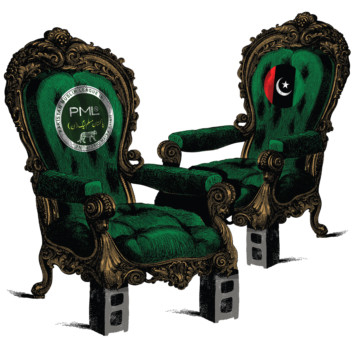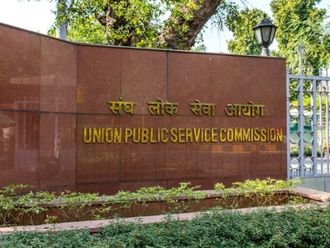
The outcome of Pakistan’s recent municipal elections was easy to foretell. The country’s two main political parties, the Pakistan Muslim League – Nawaz (PML-N), of Prime Minister Nawaz Sharif, and the Pakistan People’s Party (PPP), of former president Asif Ali Zardari, bagged a large number of seats, alongside a sizeable chunk going in favour of independent candidates. At the same time, relatively new political entrants, such as Pakistan Tehreek-e-Insaf (PTI), a political party led by former cricket star-turned politician, Imran Khan, failed to win more than a peripheral spot in these polls.
The contest was followed by claims from stalwarts of the two main parties, asserting their ascendancy in Pakistan’s politics. In time, a large segment of the independents will likely cross over to join either one of the two mainstream entities, in keeping with the tradition of Pakistan’s tainted politics. However, claims from representatives of the two political parties carried significant flaws, which also said much about the direction the country was taking.
Irrespective of how either of the two political parties will gain in the final outcome, there is little to suggest that the result of the civic polls will lift future prospects for the country’s mainstream population. In fact, the graft-ridden nature of Pakistan’s politics is such that the arrival of a new breed of politicians at the grass roots will probably add to corruption in daily life. This flows from the powerful reality of the way the ongoing crisis of governance has only exacerbated in Pakistan over time.
The PML-N and PPP easily lead the pack in terms of their failure to force individual politicians to play by the book. The two parties command a large community of individual leaders and members surrounded by suspicions of graft. Over time, the idea of forcing individuals to play by the book has been thrown out of the window as Pakistan’s mainstream political parties have become the standard bearers of democratic rule. That said, the best defence of political parties against allegations of increasing tolerance for corruption has just been one — their need to usher in democratic traditions.
Meanwhile, Sharif’s PML-N, which has ruled the country since mid-2013, continues to lead the country towards an increasingly widening gap between the rich and the poor. This is mainly the consequence of the government pushing for an ever-growing focus on mega projects, while crucial needs at the grass roots remain unattended. At a time when critical issues such as health care and public education are showing few signs of improvement, pushing for a wider political representation at the municipal level hardly makes a difference. Indeed, in an ideal world, empowering the grass roots with political power must also bring greater benefits for the public at large. This, however, is just not how life works across Pakistan’s political turf where elections are just a source of grabbing more power and clout. Tragically, as evident from the recent municipal elections, the political campaign trail remained devoid of discussions or debates on the most vital issues confronting present-day Pakistan.
This direction of events in part has been triggered by the way Pakistan has been governed since 2008 when the country’s latest phase of so-called democracy was started, following the departure of former general Pervez Musharraf from the political scene. The arrival of a PPP-led government and the installation of Zardari as president also triggered the latest saga of missed opportunities. An ever-growing energy crisis, marked by rising shortages of gas and electricity, began during the PPP’s tenure and has continued to this day without interruption.
Meanwhile, Pakistan’s economic direction under Sharif’s rule has broadly been earmarked by the pursuit of one mega project after another. In a country where a campaign against illiteracy ought to take priority over many other matters, the present regime remains obsessed with fanciful projects like new bus lines, train tracks and high-speed roads. And while the Pakistan army has successfully turned back the once-growing tide of militancy, this success needs to be backed by decisive political action to sustain and protect the gains. Unfortunately, this success story has yet to be backed by further gains such as a robust moves in parliament to frame a new national security policy that would reflect popular aspirations of the country and its people.
Long-term sustainability, backed by a badly-needed national political consensus, is essential to secure the future of Pakistan. Indeed, winning a series of battles against one militant outfit after another cannot be a substitute for a long-term strategy to end the menace of terrorism in the country. However, such a long-term approach can simply not come about unless Pakistan’s political culture begins to change for the better.
The outcome of the recent municipal elections has, unfortunately, revealed the stark reality of a few mainstream political players tightly holding on to most of the country’s political space, while the common people suffer badly. And the municipal elections indeed have wider ramifications for Pakistan as they underline a wider trend that dominates mainstream politics and decision-making at the highest level of the ruling structure. Unless Pakistan’s mainstream political players are replaced by new progressive forces, the country is unlikely to witness the rise of a new and a badly-needed group of representatives who are firmly embedded in national life.
Farhan Bokhari is a Pakistan-based commentator who writes on political and economic matters.








